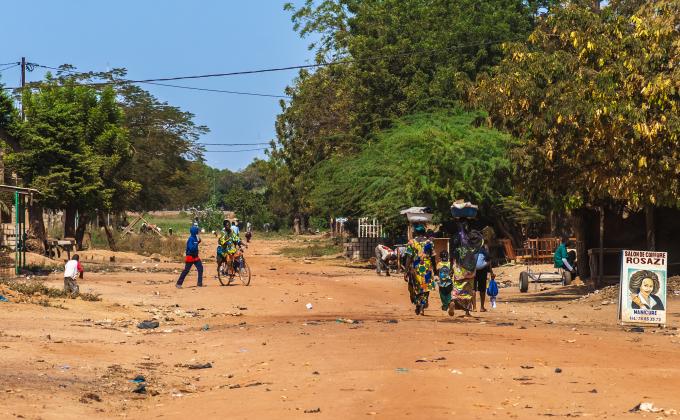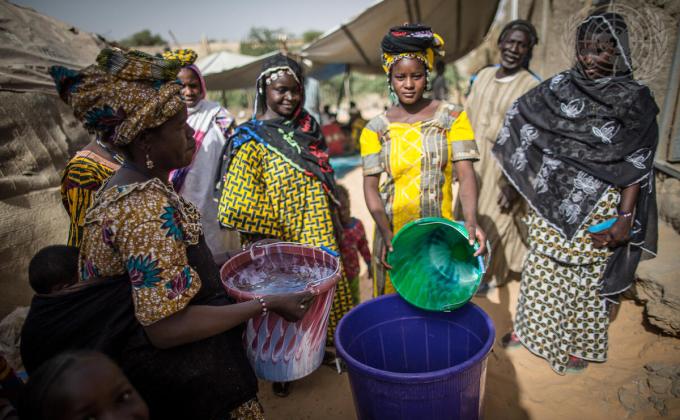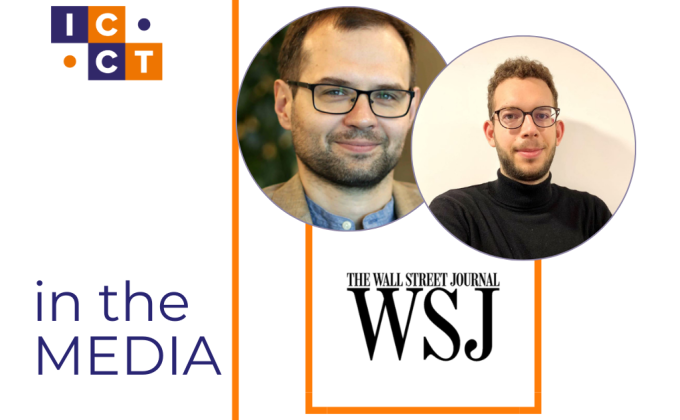Abstract: Spared by the spread of violent extremism in the Sahel until 2015, Burkina Faso has since continued to spiral further into violence and instability. In this context, the military coup conducted on 24 January 2022 emerged as the culmination of the population's growing discontent with the state’s capacity to find adequate responses to counter terrorism. This perspective analyses what this new military takeover, the latest in a series of political upheavals throughout the region, reveals about the strategy adopted by Burkinabe authorities so far, as well as the potential impact of the coup on the evolution of the violent extremist threat across the region looking forward.
Once insulated from the terrorism that plagued its neighbour, Mali, since 2015 Burkina Faso has witnessed an exponential increase in terrorist attacks. The country has indeed been confronted with the presence of various organisations affiliated with al-Qaeda, the Islamic State, as well the Burkinabe group Ansarul Islam. By 2019, Burkina Faso had experienced the largest annual increase (+590%) worldwide in terrorism-related fatalities. And while until 2019 extremist violence in the country was largely contained to the Liptako-Gourma region along the Mali-Niger-Burkina Faso border, in the years since attacks have spread to previously unaffected regions of the country.
Faced with an ever-increasing number of attacks, often directly targeting civilian populations, the country’s now ousted President, Roch Marc Christian Kaboré, repeatedly pledged to stem the tide of terrorism. However, over the past three years almost 2,000 Burkinabe have died in terrorist attacks, a clear indication that the measures taken—including increased military expenditures, cabinet reshuffles, and the controversial use of civilian auxiliaries known as the Volunteers for the Defence of the Homeland (Volontaires pour la défense de la patrie, VDPs)—failed to effectively stop the growing crisis. Following the June 2021 attack in Solhan, in which at least 132 civilians died—the largest death toll in a single terrorist attack in Burkina Faso’s history—confidence in the President’s ability to stem the tide of extremism and secure the country reached an unprecedented new low. Throughout 2021, Burkinabe forces remained ill-equipped to address the insecurity. The number of incidents more than doubled between 2020 and 2021 to over 1,100 attacks—greater than the number of violent events recorded in Mali and Niger together over the same period. The widespread instability caused by terrorist violence also triggered a humanitarian crisis, with nearly 1.5 million persons now forcibly displaced within Burkina Faso.
As the country continued to spiral further into violence and instability despite Kaboré’s campaign pledge to prioritise fighting jihadism, demonstrations brought together thousands of civilians in several cities across the country in late June and early July 2021 to denounce the state’s inaction. Public discontent continued and by December 2021, the Prime Minister was forced to resign, triggering a dissolution of the government. At the time, the beleaguered President managed to remain in power, yet it came as little surprise to observers when, on the evening of Monday 24 January 2022, after a day of confusion surrounding whether President Kaboré remained in power or had resigned, a group of soldiers in uniform announced on national television that they had taken power. Presenting themselves as the Patriotic Movement for Safeguarding and Restoration (Mouvement patriotique pour la sauvegarde et la restauration, MPSR), led by the Lieutenant-Colonel Paul-Henri Sandaogo Damiba, the junta deposed President Kaboré, dissolved the government and the parliament, and stated that they were suspending the constitution and closing the borders.
The coup in Burkina Faso emerged as the culmination of the population's growing discontent with the state’s capacity to find adequate responses to the very real spectre of terrorism. It fits into a wider dynamic observed at the regional level, which has seen two coups in neighbouring Mali, an attempted coup in Niger, an institutional coup in Chad, and another in Guinea all within the past 18 months. As observed previously in Mali, the recent military takeover followed a wave of public protests denouncing the inefficiency of the Burkinabe authorities’ action to counter extremist violence. Yet handing power and responsibility for counter-terrorism efforts to military forces has not led to improvement in the security situation in neighbouring Mali. More generally, security-focused responses that fail to address the broader conditions that are conducive to terrorism have repeatedly proven ineffective. All of which lead to deep scepticism over whether this latest power shift will be able to impact the dynamic of ever-present terrorist attacks in the country.
As terrorist violence is both intensifying and spreading throughout West Africa, increasingly affecting coastal states that were still spared until recently, current political upheavals call for an analysis of the effectiveness and shortcomings, as well as a fundamental rethinking, of the approach taken by Sahelian states to counter violent extremism. This perspective analyses what the recent military takeover reveals about the counter-terrorism strategy adopted by Burkinabe authorities so far, as well as the potential impact of the coup on the evolution of the violent extremist threat across the region looking forward.
Burkinabe security apparatus’ weaknesses and internal dissensions
Part of the reason behind the rather unimpressive results of counter-terrorism efforts deployed in the country over recent years are—at least partly—linked to the failure to properly equip and the problematic restructuring of the Burkinabe security apparatus following the fall of Blaise Compaoré’s nearly 30-year regime in 2014. Already affected by the mutinies of 2011, which led to the dismissal of more than 500 military, the fall of the regime and a subsequent coup attempt in 2015 further weakened security and defence capabilities. It notably led to the dissolution of the presidential security regiment (régiment de sécurité présidentielle, RSP), an elite force that had benefitted from most of the country’s military resources and equipment to the detriment of other units—creating tension that remains to this day. The force had also played a crucial role in intelligence, a crucial responsibility that has not been taken up by other national forces. Issues also relate to the unbalanced pyramid that characterises the national army, which counts too many high-ranking officers as compared to low-rank soldiers leading to what is sometimes labelled as an “armée d’apparat” in which only about 18 percent of the Burkinabe forces are exposed to combat situations. This has fuelled intergenerational tensions between young low-rank troops who feel they are being used as cannon fodder and not having the adequate means, information, and support from the officer corps, who are regarded as being widely corrupted.
Against this backdrop, frustrations have continued to grow among the security and defence forces on the frontlines, which have suffered from ever-growing numbers of attacks against military posts and patrols, resulting in around 500 casualties over the past six years. The attack against a gendarmerie post in Inata on 14 November 2021, resulting in more than fifty deaths, represented a further blow to Kaboré’s leadership. Information subsequently released about the living conditions faced by the military in Inata highlighted that they had been left without food and other supplies for the two weeks before the attack, sparking public outrage. As military forces started to more openly voice their discontent, denouncing a lack of support and resources to counter the spread of violent extremism, the broader population also increasingly demanded that national authorities properly equip security and defence forces.
Although the Burkinabe citizens who called for the resignation of Kaboré and expressed their support for the long under-resourced military seem to have gotten their way on 24 January, the new military rulers’ ability to address these structural weaknesses and internal dissensions however remains to be seen. Given the fragmentation that characterises security and defence forces, not all elements within the military may be loyal to the coup leader Damiba, with experts actually warning against the risk of further disruption. Even if effectively addressed, dysfunctions within the military apparatus do not suffice to explain the shortcomings of counter-terrorism efforts. In other words, while a reform of the security sector might well be needed, it can only be part of a broader solution paying due attention to the socio-political factors that have allowed violent extremist groups to gain grounds in the country.
Shortcomings of security-focused responses to complex crises
Recent events in Burkina Faso clearly call into question the effectiveness of current approaches, but more broadly they underline the danger of prioritising counter-terrorism over addressing the complex factors that enabled violent extremism to flourish throughout the country. In contrast to the narrative that has prevailed for a time, the spread of violent extremism in Burkina Faso is far from being the mere result of an external threat having spilled over from neighbouring Mali. Terrorist organisations have indeed found a fertile ground in remote regions of the country, where they have built upon deep-rooted local socio-political factors. Violent extremist groups have notably instrumentalised longstanding tensions over the access to land and natural resources, rigid social hierarchies and social divides, grievances against local authorities perceived as being corrupted, and distant relationships with central states.
In this context, not only have military interventions proved insufficient, but even counter-productive. Security and defence forces having repeatedly been accused of serious human rights abuses, which has in turn increased grievances against the central state and has likely been a contributing cause for some of the support received by terrorist groups in the region. Thus, while among the main demands of the mutineers was the need for more means and support for the military forces fighting violent extremist groups on the frontlines, it may not bring better results on the ground, as illustrated by the situation in neighbouring Mali where the military presence is already strong and multifaceted. Despite about 15,000 UN peacekeepers deployed under the MINUSMA mission in Mali, French Operation Barkhane, the Takuba force, and the EU training missions, the security situation has not significantly improved. France alone has spent around 880 million euros a year on its counter-terrorism operations across the region. However, instead of the lack of results in Mali serving as lessons learned, efforts in Burkina Faso have followed much the same path. Fears that military rule will only worsen the security situation seem well founded. Not only is there a risk for a vacuum to emerge as the junta seeks to consolidate power, but a clear strategy to comprehensively address the violent extremist groups operating in the country is and will likely continue to be sorely lacking.
Political unrest’s potential impact on the spread of violent extremism
While the UN, the Economic Community of West African States (ECOWAS), and France have condemned the coup, the takeover received significant popular support, with citizens having gathered in the streets of the capital following the announcement of the fall of the government. This putsch provides yet another example illustrating how military coups seem to be increasingly regarded as the only pathways to political renewal across the region. Civil governments appear as being so discredited by their inability to ensure state presence and provide basic services in remote regions, by widespread corruption and inaction, that military takeovers seem to emerge as the only way forward in the eyes of the population. Whether the junta can better address the spread of violent extremism and meet popular demands for more security than the previous democratically elected government is, however, uncertain.
Recent events might rather serve violent extremist groups’ interests. Consolidating their power base in Ouagadougou, the country’s capital, will be at the core of the junta’s attention in the coming months, which may create a security vacuum that violent groups could exploit particularly in rural areas. Over the longer-term, it may further fuel the vicious cycle that Sahel countries have been facing over the past years. While terrorist organisations operating throughout the region have used grievances against a largely absent central state to gain grounds in remote regions, the rise in terrorist violence and the incapacity of the state to counter it have in turn further exacerbated the distrust and resentment against central authorities that had initially benefit insurgents. The military takeover, and the narrative behind it, therefore represents “a major propaganda success” for terrorist organisations in their attempt to discredit democratically elected leaders and present themselves as credible governance alternatives.
Tackling the multifaceted and transnational threat that violent extremism pose in the region, with spill-over effects increasingly affecting Coastal West African states such as Côte d’Ivoire and Benin, moreover requires strong cooperation between countries in the region, which might be compromised given ECOWAS’ position. It might moreover impact foreign support received. France is already slowly reducing its military presence but might be inclined to accelerate the process, in a context moreover marked by the death of a French soldier in a mortar fire attack of the Gao military camp in Northern Mali, which brought the number of French troops killed in countering violent extremism in the region to fifty-three. France has moreover been confronted with rising opposition to its presence in the region, as illustrated by the blockage of a French convoy in Northern Burkina Faso in late 2021.
Conclusions: short-term responses and long-term challenges
This situation places the international community in a very delicate position. While the absence of a firm response to the military coup d’état might suggest that taking power by force may be done without major adverse consequences, imposing sanctions has the potential to further aggravate the dire conditions that civilian populations are already facing and further reinforce grievances among local populations. Even as the extension of transition period by the military junta in power in Mali triggered sanctions from the ECOWAS region, its leader Assimi Goïta and its government continues to benefit from significant support from the population.
Located at the junction between Coastal West Africa and Sahelian countries, Burkina Faso occupies a highly strategic position. The situation must be closely monitored in the coming months as political developments in the country, , could deeply affect neighbouring countries. Recent events moreover show that adding more troops is not necessarily the right answer though restructuring and reforming the security sector, and providing adequate training and resources to security forces are likely be needed.
It is undeniable that Burkina Faso’s military is ill-equipped to address the complex challenge of violent extremism in the country; yet handing the reigns to the military, to simply spend more resources on security-focused responses alone, is likely to fail to improve the safety and security of ordinary Burkinabe citizens. Instead, a concerted effort must be made to comprehensively address the myriad factors that have given rise to the proliferation of terrorist groups in the country. These in and of themselves are complex challenges: food insecurity, extreme poverty, interethnic tensions, and corruption, to name but a few. Instead of focusing primarily on sending military resources and security forces in response to the developments, the international community can play an influential role in the long-term by continuing to push for broader and more comprehensive reforms that will address the confluence of humanitarian, development, and security concerns facing Burkina Faso.
Photocredit: Wikifrits/Wiki Commons









